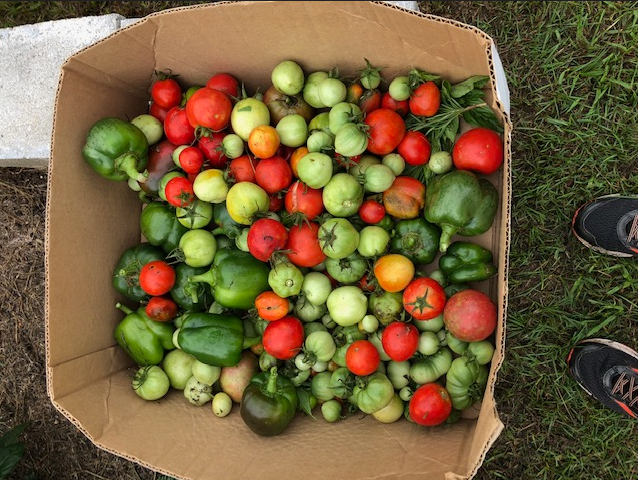Food insecurity is defined as a “state in which consistent access to adequate food is limited by a lack of money and other resources at times during the year,” according to the USDA. Food insecurity can be not having access to nutritional, healthy foods such as fresh produce and proteins or not having access to transportation to get to a store that sells affordable, nutritional foods. Although Winthrop does have grocery stores that sale a variety of foods within walking distance to the campus such as Earth Fare and convenient stores such as Walgreens and CVS. However, these stores are either not affordable or do not sell food that contains much nutritional value.
“I mean Earth Fare is convenient as far as nutritional value but not financial. Other places like Walgreens or CVS are good with affordability but only offer snack foods or frozen food which are really high in sodium and don’t have the nutrition that I need, like protein, since I have an iron deficiency,” Grace Johnson said, a student at Winthrop.
Johnson lives off campus, doesn’t have a car at Winthrop, and doesn’t have a meal plan this year. For Johnson, and many students like her, it is difficult to get to an affordable grocery store in a timely manner. Many college students don’t work or only work part time due to taking a full set of classes, meaning most students don’t have a stable income to afford health food stores such as Earth Fare. This leaves many students at Winthrop to struggle with food insecurity.
“…around 38-40% of our students are struggling with food insecurity. I do think not having a grocery store close can hurt students, especially since Earth Fare is a little high priced. It does seem to impact the students a little on access to lower price stores with good quality of selection.” Dr. Wanda Koszewski said, the department chair for human nutrition at Winthrop.
Having over 35% of Winthrop students struggling with food insecurity leaves many Winthrop students wanting a solution. As of now students facing food insecurity are having to rely on friends for transportation or even go without groceries.
“…it’s not worth getting an uber just for a 5 minute drive (or 30 minute walk) [to the nearest neighborhood Walmart]…I usually wait for one of my roommates or friends to go shopping and I’ll tag along with them,” Johnson said.
Having to wait on transportation from other people to get to and from the grocery store can take valuable time away from a person, especially a college student who needs that time to study and go to class. Some students believe there is more that can be done to help with the food insecurity issue on campus.
“We just finished putting an abstract together on this project [food insecurity on campus] and this is what we put in it: The final question on the survey asked students to provide feed[back] on how to help them with their financial resources when it comes to food security. The most common themes were food scholarships, longer dining service hours, development of financial literacy program for students, lower meal plan prices, and an online food bank so students could donate café cash and meal swipes…,” Koszewski said.
Overall students believe there are a few things that can be done regarding ways to acquire food on campus. Many ways to get food on campus are very expensive, such as the expensive meal plans and the prices at eagle express. Although it seems to be a silent issue, many students at Winthrop are struggling with food insecurity and many are going without groceries or the proper nutrition they need. They are paying their tuition and for their textbooks but cannot afford food.
“In past years I’ve gone without groceries but not this year since I’m living in an apartment with friends that have cars and most of the groceries we buy are communal…but getting my own groceries has to be more planned out and I don’t get to do that for days at a time sometimes,” Johnson said.




